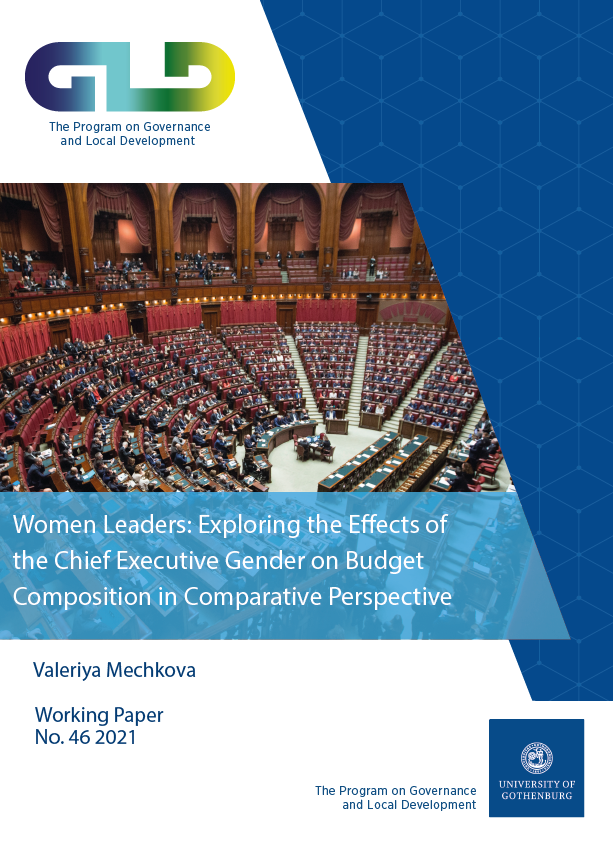No.46 Women Leaders: Exploring the Effects of the Chief Executive Gender on Budget Composition in Comparative Perspective
Valeriya Mechkova
Abstract
Arguably, the single person with the most influence over any country’s policies is the chief executive, head of state, or head of government. Research has also consistently shown systematic gender differences in politicians’ priorities and behavior. Yet, few academic manuscripts connect these two lines of research; we have not understood to a sufficient extent the effects of having a woman chief executive. To fill this gap, this paper studies the imprint of gender leadership patterns on budget composition across 155 countries between 2000 and 2016. Matching methods help overcome the low number of women chief executives (36 countries) and improve the validity of causal inference. This paper shows that having a woman chief executive is associated with a subsequent increase in government spending for healthcare – a policy consistently found to be higher on women’s priority lists than men’s. This positive effect is present only when women hold de-facto power – i.e., not when women hold ceremonial positions – and is not present when considering education or military resources expenditure. Thus, the findings from this paper add to the evidence that identity politics matter, as women national leaders can have transformative effects on policy outputs, particularly in areas prioritized by women.
